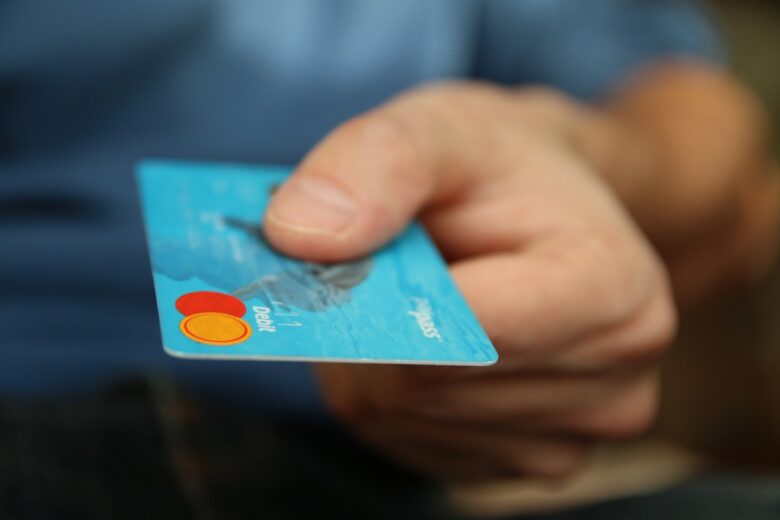Credit cards can be valuable financial tools when used wisely, providing convenience, rewards, and building credit.
However, it’s essential to use them responsibly to avoid debt and financial pitfalls.
Eight smart tips for using credit cards intelligently to maximize benefits and minimize risks.
Understand Your Credit Card Terms
Start by thoroughly understanding the terms and conditions of your credit card, including interest rates, fees, rewards, and grace periods.
Familiarize yourself with important terms like APR (Annual Percentage Rate), credit limit, minimum payments, and penalty charges to make informed decisions about your card usage.
Knowing these details helps you avoid unexpected charges and manage your credit more effectively.
Key Terms to Know
- APR (Annual Percentage Rate): This is the annual interest rate you’ll be charged if you carry a balance on your card.
- Credit Limit: The maximum amount you can borrow using your credit card.
- Grace Period: The time you have to pay your bill in full before interest is charged.
- Penalty Fees: Charges for late payments or exceeding your credit limit.
Pay Your Balance in Full Each Month
One of the most effective ways to use a credit card intelligently is to pay off your balance in full each month.
This not only helps avoid costly interest charges but also improves your credit score by demonstrating responsible credit management.
When you pay your balance in full, you essentially get to enjoy the benefits of your credit card without incurring additional costs.
Benefits of Paying in Full
- Avoid Interest Charges: Interest can add up quickly if you carry a balance.
- Boost Credit Score: Timely, full payments show lenders you’re a reliable borrower.
- Financial Control: Keeping debt at bay helps maintain financial stability.
Keep Track of Your Spending
Maintain a record of your credit card transactions and track your spending regularly.
Use mobile apps, online banking, or budgeting tools to monitor your expenses, detect unauthorized charges, and stay within your budgetary limits.
Being aware of your spending helps you avoid overspending and ensures that you can pay off your balance each month.
Tools for Tracking
- Mobile Apps: Many banks offer apps that let you track spending in real-time.
- Online Banking: Access your account anytime to review transactions.
- Budgeting Tools: Apps like Mint or YNAB can help categorize and monitor your expenses.
Use Credit Wisely, Not as Free Money
View your credit card as a financial tool, not free money.
Use it for planned purchases that you can afford to pay off promptly, rather than relying on credit for everyday expenses or impulse buys. Responsible use helps build credit and avoids unnecessary debt.
Treating credit as an extension of your cash flow rather than an additional source of funds prevents financial overreach.
Smart Usage Tips
- Planned Purchases: Use your card for items you’ve budgeted for.
- Emergency Fund: Have a savings buffer to avoid relying on credit in emergencies.
- Avoid Impulse Buys: Stick to your shopping list and budget.
Pay On Time, Every Time
Always make payments on time to avoid late fees, penalty charges, and negative impacts on your credit score.
Set up automatic payments or reminders to ensure timely payments each month, even if it’s just the minimum payment required.
Timely payments are a key factor in maintaining and improving your credit score.
Importance of Timely Payments
- Avoid Fees: Late fees can be costly and add up over time.
- Credit Score Impact: Payment history is a significant factor in your credit score.
- Interest Savings: Timely payments help avoid additional interest charges.
Be Mindful of Credit Utilization
Keep your credit utilization ratio—the amount of credit used compared to your credit limit—below 30% to maintain a healthy credit score.
High utilization can signal financial strain and may negatively impact your creditworthiness. Monitoring your credit utilization helps you maintain a balance between available credit and outstanding debt.
Managing Utilization
- Regular Monitoring: Keep an eye on your balances relative to your limits.
- Multiple Cards: Spread expenses across multiple cards to keep utilization low.
- Credit Increases: Requesting a higher limit can lower your utilization ratio.
Take Advantage of Rewards and Benefits
If your credit card offers rewards, cashback, or other benefits, take full advantage of them.
Maximize rewards by using your card for eligible purchases, such as groceries, gas, or recurring bills.
Be aware of any expiration dates or restrictions on rewards redemption. Properly leveraging rewards can provide significant value and enhance your overall credit card experience.
Maximizing Rewards
- Eligible Purchases: Use your card for categories that offer the highest rewards.
- Promotions: Keep an eye out for special promotions and bonus rewards.
- Redeem Strategically: Use rewards for valuable redemptions like travel or cashback.
Review Your Statements Regularly
Review your credit card statements monthly to check for errors, unauthorized charges, or fraudulent activity.
Report any discrepancies promptly to your card issuer and take steps to secure your card and account information.
Regular reviews help you catch issues early and maintain accurate financial records.
Steps to Reviewing
- Detailed Check: Look at each transaction to ensure it’s accurate.
- Report Issues: Contact your issuer immediately if you find errors.
- Security Measures: Update passwords and enable alerts for suspicious activity.
Using credit cards intelligently involves understanding terms, paying balances in full, tracking spending, using credit wisely, making timely payments, managing credit utilization, leveraging rewards, and reviewing statements regularly.
By following these smart tips and practicing responsible credit card management, individuals can enjoy the benefits of credit while avoiding common pitfalls and maintaining financial success.
